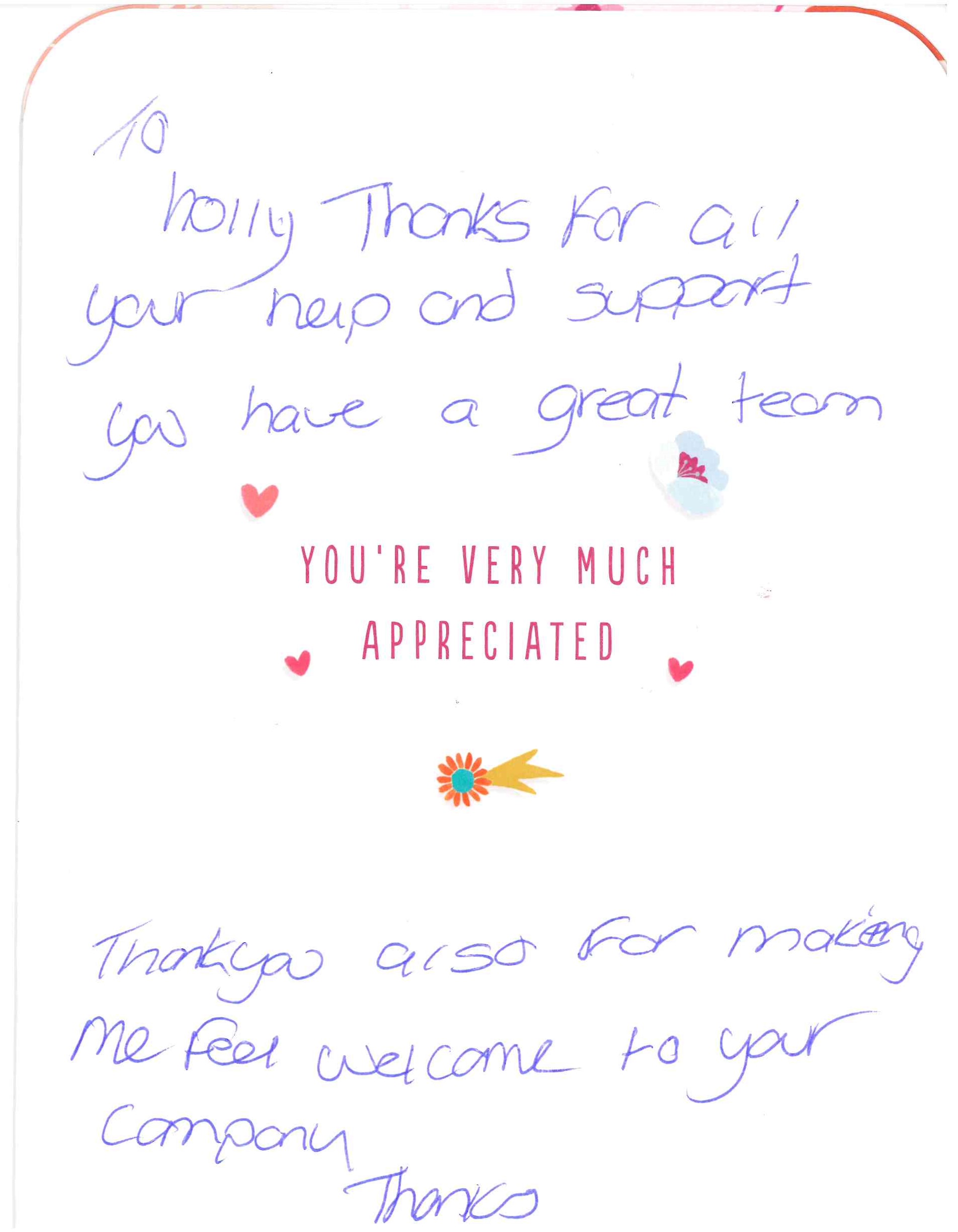Personalisation
As part of the Governments personalisation agenda our organisation works with other partners and healthcare professionals (Health colleagues, housing, and employment) in ensuring that the service we provide to individuals has become central to meeting their expectations.
Our organisation is evolving in working with these groups as equal partners and ensuring that our Service Users are at the centre of the care process.
The Personalisation Agenda has meant we:
- Recognised that the types of support that people who use services say they need may not be confined to personal care – they can include a much wider range of tasks, housing needs, education needs and transport needs.
- We’ve developed systems and training to enable staff to expand their skills and to work in creative, person-centred ways.
- Thought about how to contribute to the expansion of the personal assistant (PA) workforce and to the increasing need for specialist services by diversifying into these markets.
- Recognised that home care services, whether provided directly by the council, paid for privately or by personal budget holders, must be focused on identifying and achieving outcomes specific to the Service User.
- Developed strong relationships with local authorities, working together so that where possible we have the freedom to innovate and use budgets flexibly as agreed with the person using services.
In addition:
- We have worked to improve capacity, recruitment and retention as we see these as increasingly important issues.
- We appreciate personalisation has the potential to give home care providers a good opportunity to make work more interesting and rewarding.
Our ongoing aims will be to enable the service user to remain in their own home, promoting their independence, prevent de-skilling and whenever possible, hospital admissions. We will work closely with our colleagues and healthcare professionals to support early discharges from hospital and prevent dependency, we will facilitate a reduction in homecare wherever possible and help provide any help and support that family (or informal carers) may need.
We will maximise long-term independence and provide ongoing support if needed to help service users reach and maintain their goals, we will help the service user ‘to do’ rather than ‘do to, or for people’.
We review and assess the care and support provided to the service user on a quarterly basis by seeking feedback from both the service user and their families. In this way we can ensure that we are still meeting their needs and goals, it also enables us to identify whether there is a need for help and assistance from other external sources such as the Occupational Therapists, who can provide the appropriate aids in a service users home. As per our policy we ensure any relevant information is included in the Personal record of the Service User to ensure staff are aware of all issues, concerns any medical conditions.
Person-Centred Care
A person-centred approach to providing care and support is as important for people who receive services (and their family or significant others) as it is to staff. The emphasis is always on the person as an individual. In a person centred approach the unique qualities of the individual is determined by their life history and experiences, likes and dislikes, are their defining characteristics. This includes the right to be treated with dignity and respect. Our Care and support services build on individual strengths and abilities to maximise and promote independence. Our Services enable people to feel valued and safe.
We use the following to focus on a Person Centred delivery:
- A full assessment is undertaken prior to a service being provided.
- Evaluation and reassessment is ongoing.
- The individual is fully involved.
- Cultural needs are appropriately considered.
- Well-being for the individual is actively promoted.
- The language used will be acceptable to the person receiving care.
- Care plans are used as communication tools – evaluation is meaningless in the absence of well-documented care.
- A key worker system matches individuals and staff.
- Relatives (and significant others) feel involved.
We recognise that stability and maintaining (developing) a service users independence enables them to remain in their own homes for as long as is practically possible. Care plans will be formed around a service users needs and preferences, their likes and dislikes and capabilities (what they are able/not able to do for themselves) and will establish their circumstances surrounding their current health needs, nutrition, medications, G.P., hospital appointments etc and the importance of encouraging and ensuring that they are ready for community activities such as day centre, meeting their cultural needs. The care plans will be reviewed and re-assessed on a regular basis to ensure that we continue to provide the right assistance for the individual.
Risk assessments are not only centred around the needs of the individual, but also around their living environment. Promoting self independence can expose people to risk so they are monitored and reviewed when necessary. Safety equipment like, care line, door alarms, telelink will also be part of the risk assessments so staff are aware of their use and importance to the safety of the service user. Risk assessments also take into account the individual behaviour patterns of a service user and documented for the safety of the service user and care staff.
Our staff understand that good communication is extremely important when working with service users especially for someone who has a form of dementia. Service users behaviour patterns can be different each day and they will understand how to deal with these changes and the best form of communication that goes with them i.e. limit distractions, eye to eye contact, simple questions seeking yes or no answers, are they wearing hearing aids and glasses, do they want to communicate at that moment in time if not try a few minutes later. Dementia sufferers can forget how to assemble, remember, receive or express words so carers are trained to recognise the need to be patient and flexible with their range of communications and to be adaptable where practical i.e. gentle physical gestures, escorting and encouraging them to the room they need to be in, gentle strokes of the arm, hand for calming and comforting a service user.
Another form of enabling a person to be able to communicate and live happily at home is for care staff to have knowledge of that person’s life history. Life history provides vital information necessary for dementia care, it contributes to setting meaningful goals and promotes well being. Carers also encourage service users to be as independent as possible and to complete as many tasks for themselves as possible.
Service users with the help of care staff and in line with our framework agreement will encourage individuals in their daily living tasks, such as maintaining personal care/dressing needs, household tasks such as shopping and laundry enabling independence and avoiding dependency on the carer, it builds up and maintains what they can do for themselves, maintaining their independence, enabling them to remain in their own homes. Carers are also trained to deal appropriately with wandering and recognising the importance of keeping the service users environment intact i.e. furniture and personal belongings to be kept in a certain place, not to be moved, to eliminate confusion.
OPENING HOURS
| Week Days | 9am – 5pm |
01204 399 195
REQUEST A CALL BACK
Request a call back
Frequently Asked Questions
Why choose Mayday Homecare?
Domiciliary (or homecare) is now the preferred choice, there is nothing quite like the comfort of your own familiar surroundings and many now choose to stay in the privacy of their own home for as long as possible while receiving care.
How often can I have help at home?
We can accommodate a wide variety of requirements, from the occasional hour (or part of), up to 24 hours a day, seven days a week, 365 days a year. We are here to provide support based on your specific wishes.
We support your independent care
We provide a bespoke service designed to enable you to remain as independent as possible, we offer different levels of support, as you need it, when you need it.













